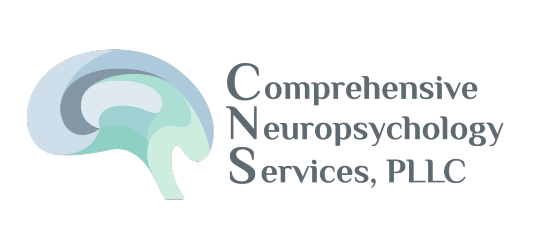
As human beings, we all rely on our executive functions to help us plan, organize, initiate, and complete tasks. Executive functioning skills are especially critical for success in academic and social settings and they can significantly impact an individual’s overall quality of life. Not only do they refer to cognitive or thinking abilities, but these skills also enable individuals to control their impulses, regulate their emotions, and make decisions based on reason and logic.
At Comprehensive Neuropsychology Services, Katherine Baum, PhD, ABPP-CN, specializes in identifying and treating issues related to executive functions.
Key Executive Functions
Although definitions vary, executive functions can be divided into several key areas:
- Working Memory: The ability to hold and manipulate information in the mind for short periods of time.
- Cognitive Flexibility: The ability to shift between different activities, perspectives, and strategies.
- Inhibitory Control: The ability to resist impulsive behaviors and control emotions.
- Planning and Organization: The ability to set goals, create plans, and manage time effectively.
- Self-Monitoring: The ability to reflect on one’s performance or behavior and adjust as needed.
Each of these areas is essential for success in different aspects of life, from managing daily tasks to achieving long-term goals.
How can a Neuropsychologist Help with Executive Functioning?
A neuropsychologist is a specialized healthcare professional trained to assess and treat a wide range of neurological and developmental conditions. When it comes to executive functions, Dr. Katherine Baum, a private practice neuropsychologist, can provide invaluable support in several ways:
Conducting a Comprehensive Evaluation
A neuropsychological evaluation involves a thorough assessment of an individual’s cognitive abilities, including executive functions. Through a series of tests and assessments, a neuropsychologist can identify areas of strength while also highlighting any areas of weakness or need, including how it relates to executive skills. Neuropsychological evaluations can also help determine if these weaknesses are the result of an underlying developmental, medical, or neurological condition.
Developing a Personalized Treatment Plan
Based on the evaluation results, a neuropsychologist can guide the development of a personalized treatment plan to address issues related to executive functions. This may include strategies or treatments for improving working memory, cognitive flexibility, planning and organization, and self-monitoring. Supports at home, school, or in the community may help.
Providing Ongoing Support and Guidance
A neuropsychologist like Dr. Katherine Baum can provide ongoing support and guidance through executive functioning coaching, helping the individual work to improve his or her executive functioning skills. Therapy or coaching may involve regular check-ins, additional assessments, and modifications to the treatment plan as needed.
Collaborating with Other Healthcare Professionals
A neuropsychologist can also collaborate with other healthcare professionals, such as educators, therapists, or physicians, to ensure that an individual’s treatment plan is comprehensive and tailored to their needs.
Bottom Line
At Comprehensive Neuropsychology Services, we understand the importance of executive functions for success in all areas of life. Dr. Katherine Baum, a private practice neuropsychologist, is dedicated to helping individuals improve their executive functions through personalized evaluations and treatment planning.










